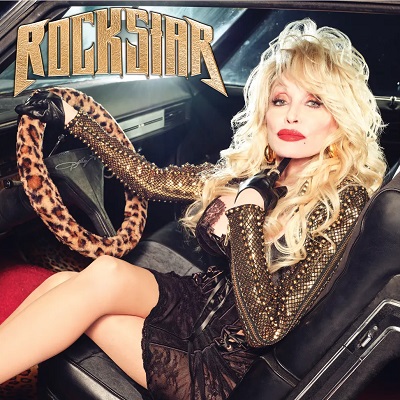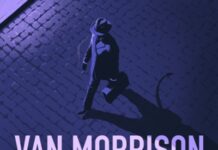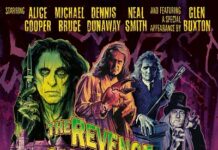Before you go laughing off the idea of one of country music’s most endearing and indelible icons crossing over the music bridge into rock territory as adorable, let’s first remember that Dolly Parton is the epitome of the term “crossover success.”
Even as she sang of wearing a coat of many colors or begging Jolene to please not take her man, Dolly’s vulnerable vibrato and buoyant personality always teetered on the edge of pop. By the time she gets to “Here You Come Again,” “9 To 5,” and “Islands In The Stream,” she dominates that particular chart as much as she would the country one.
So if you think about it, what is rock these days but really edgier pop? Just as Dolly had no fear jumping off one genre cliff into the expansive pop ocean, she now climbs a little higher and takes a bigger leap. I would argue she set the standard for acts like The Chicks and Miranda Lambert to shed country music archetypes and flash a pointed middle finger a la Johnny Cash at the concept of convention.
And I applaud the fact she has no fear. There doesn’t need to be any. She’s proven herself. She’s been inducted into the Rock and Roll Hall of Fame when she implored the powers that be to consider somebody else in her place. That request was denied. So instead of just gathering her statue and storming out of the Barclays Center with an air of indifference, she decides to live up to the perceptions of others just so she feels worthy of the accolade bestowed on her.
But Rockstar isn’t an album fueled by pressure; it’s one of ease. The luminaries and icons showcased here — many of whom are already enshrined in the Rock Hall — bolster her without coercion. Like proud parents, they nudge her into a different spotlight and cloak her in assurance. With every confident note Dolly projects, the need for the originators to be playing and singing with her isn’t necessary — it’s just a welcome complement. I mean if two Sirs — Paul McCartney and Elton John — and female rock saviors like Debbie Harry and Stevie Nicks are all taking this seriously, shouldn’t we give this a chance as well?
Fortunately, Dolly doesn’t put on any pretense on the album’s 30 — yes, that’s right 30 — tracks. Rather than transform herself into a belter or a screecher, she modulates her instrument over nearly two-and-a-half hours with just the right amount of edge to stay the truest version of herself. Even when her belly is full of inferno-like fire on a take of Joan Jett’s “I Hate Myself for Loving You,” she still sounds like the same Dolly we’ve come to love and relate to over the years.
Even though this is a serious endeavor for Dolly, there are moments of levity throughout the album. The opening riff of “Rockstar” has an Alan Parsons Project “Sirius” sound and it’s hard to ignore the traces of Twisted Sister’s “I Wanna Rock” throughout. Dolly’s take on Bob Seger’s “Night Moves” with Chris Stapleton is a tad over the top and overplays the wistful nostalgia that sent Seger into the musical stratosphere in 1977. “We Are The Champions” just doesn’t have the bombast and oomph of Queen’s monumental staple — but really, who can compare to Freddie Mercury vocally? While I understand having “Free Bird” as the closer, it’s simply too cliché and that double guitar interplay doesn’t leave much room for this songbird except to simply sing the title words on repeat.
“I Dreamed About Elvis Last Night” is the Dollyest of all the tracks. It’s unnecessary but my sense is it’s included just so Dolly can remind her stalwart fans that the album as a whole is a well-plotted experiment; they shouldn’t be too concerned she’s straying from the flock that loves her and her country-pop sound.
So with that all out of the way, let’s segue to a few of the album’s true highlights — of which I am pleased to say there are a number of:
- “You’re No Good” is terrific and would be perfect if Linda Ronstadt could have been a part of it. While Sheryl Crow steps in to fill the void Linda sadly can no longer take on, this could have been a “Trio” reunion for the ages. At least we still have Emmylou Harris on the track so two out of three certainly ain’t bad.
- “Bittersweet” is a seemingly anomalous yet unique pairing of Dolly with Doobie Brother Michael McDonald. All that’s missing from the track, based on its sound, is Sade — and I mean that in the best way possible.
- On “Heartbreaker,” rock queen Pat Benatar lowers herself vocally to give Dolly the microphone. You can feel her goading her into more and more intensity as Dolly becomes more comfortable uttering the phrase, “You’re the right kind of sinner to release my inner fantasy.” Ann Wilson is also happy to see Dolly as her in-the-moment Nancy Wilson on a spirited take of “Magic Man.”
- Dolly’s duet with Judas Priest frontman Rob Halford “Bygones” will have you wishing Dolly was invited to join the Hear ’n Aid “Stars” project from back in 86. After hearing this track, I’m convinced that if Ronnie James Dio were still alive, he would have shoved his way through for the opportunity to sing with Dolly.
- Dolly manages to get elusive Steve Perry to sing with her on “Open Arms.” On this track, she not only exudes a Kate Bush-like eeriness but with Perry in tow, the track becomes the second incarnation of Phil Collins’ and Marilyn Martin’s “Separate Lives.” Now I can hear what the latter pairing was truly inspired by!
- Dolly transforms Prince’s “Purple Rain” into the penultimate gospel track he had always intended it to be.
There’s no denying that Dolly will be granted multiple bites of the genre-swapping apple should she choose to continue in this vein. It’s my hope she won’t go the route of Rod Stewart and his standards collection, if only because something like this shouldn’t be churned out as commercialized, factory-style by-product. Dolly being Dolly, she treats this album as a “not throwing away my shot” kind of experience. For her, it’s all or nothing. For us as listeners, let’s regard this as a solid attempt at all.
~ Ira Kantor




















